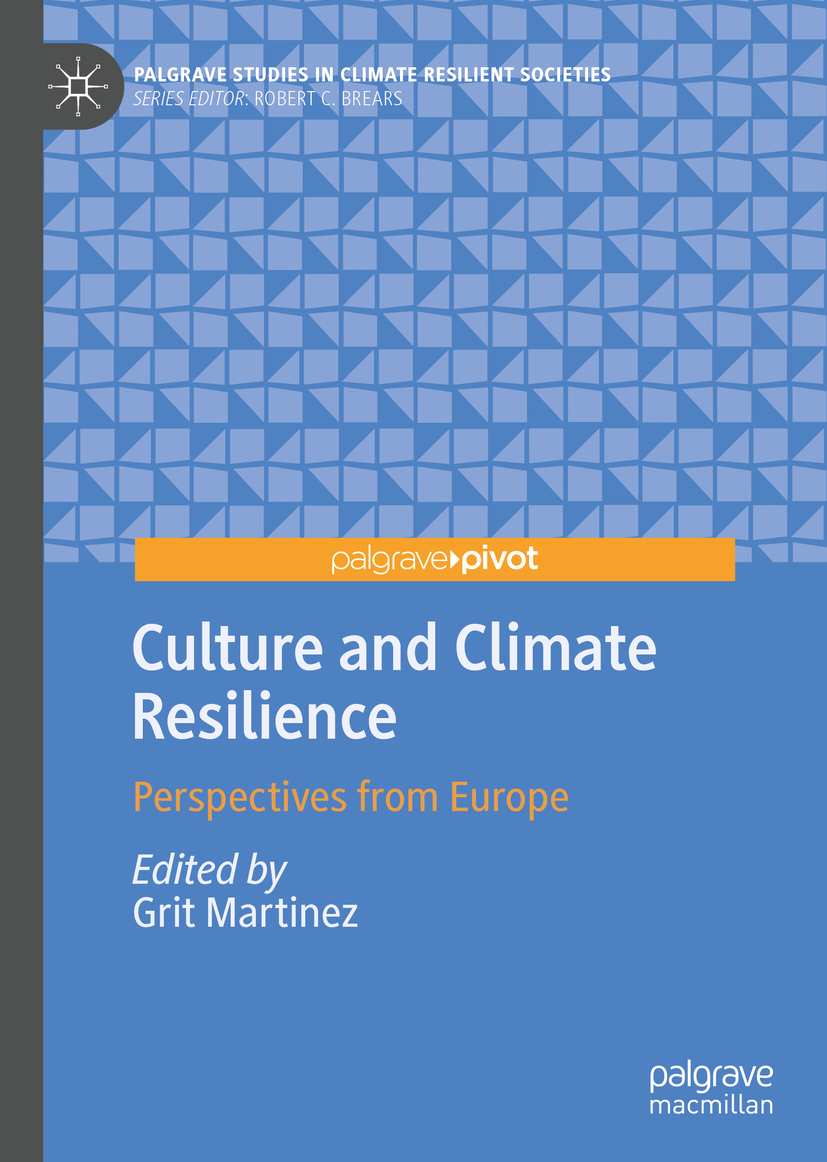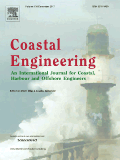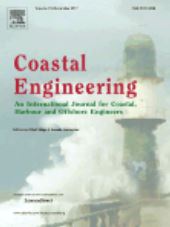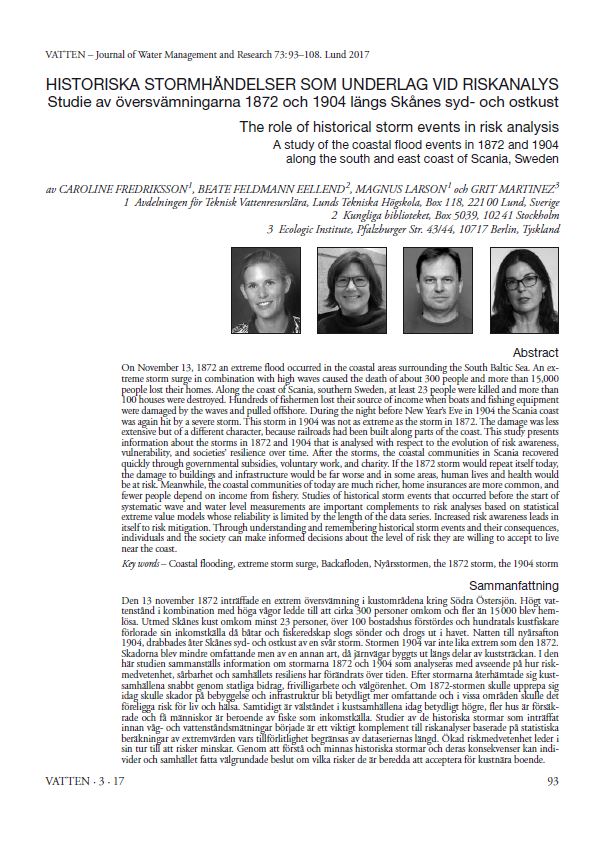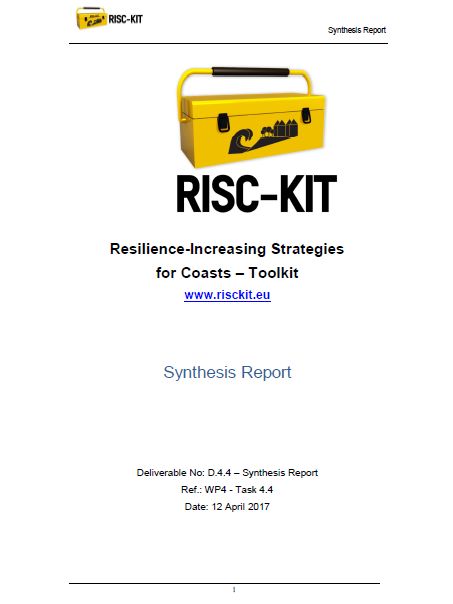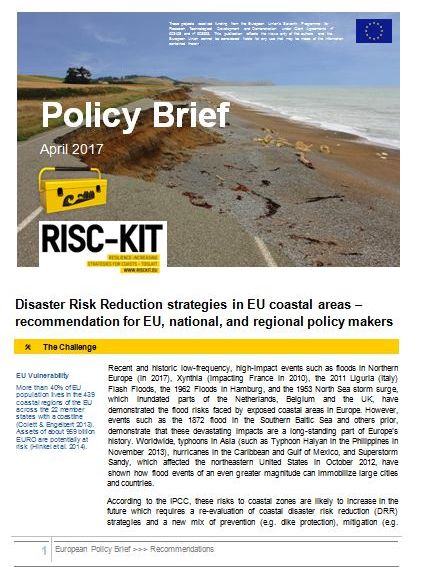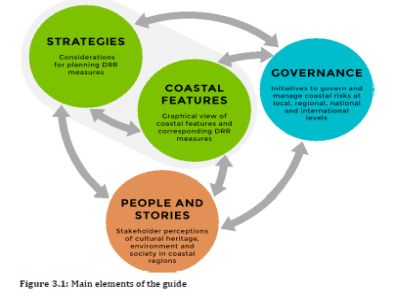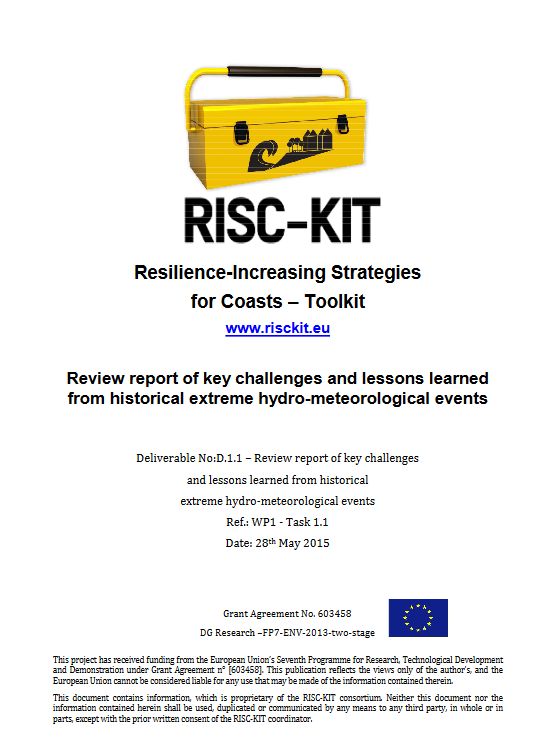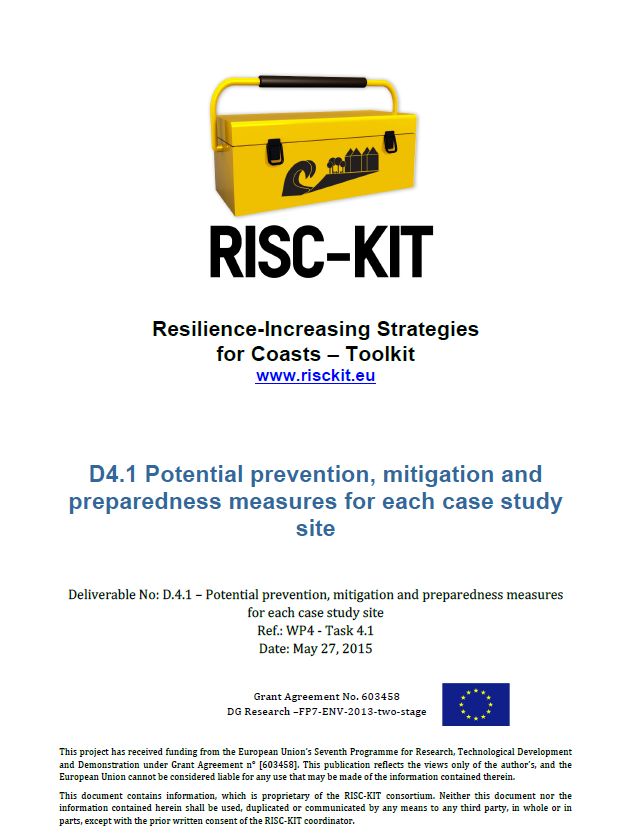Climate change is leading to increased vulnerability of coastal areas as coastal storms, sea level rise and flooding cause significant impacts across Europe. Resilience-Increasing Strategies for Coasts – toolKIT (RISC-KIT) is a four-year European research project aimed at delivering ready-to-use methods, tools and management approaches to reduce risk from coastal storms and increase the resilience of Europe’s coastal zones. Designed around 11 case study sites, 10 European and one international, the project takes an interdisciplinary approach combining physical, socio-economic, socio-cultural and social-ecological data to design site specific Disaster Risk Reduction (DRR) strategies and draw implications for national and European policy.
Strategies to increase resilience and adapt to climate related coastal storms in Europe
Recent and historic low-frequency, high-impact events (Cyclone Xynthia (2010), Ligurian flash floods (2011)) demonstrate the flood risks faced by exposed coastal areas in Europe. These risks are expected to increase due to climate change as well as growing populations and increasing economic investments in coastal areas. Effective action requires re-evaluating coastal disaster risk reduction strategies and developing a new mix of prevention, mitigation, and preparedness measures. Resilience-Increasing Strategies for Coasts – toolKIT (RISC-KIT) is a four-year European research project aimed at delivering ready-to-use methods, tools and management approaches to reduce risk from coastal storms and increase the resilience of Europe’s coastal zones. RISC-KIT is funded under the EU's Seventh Framework Programme (FP7) and is carried out by an interdisciplinary consortium of 18 partners from 10 countries.
The overarching aim of RISC-KIT is to support the EU and its Member States to achieve the priorities for action set out in the Hyogo Framework for Action (HFA). The HFA is a 10 year (2005 – 2015) international plan that sets out the work required by all actors and sectors to reduce disaster losses. Discussions on a post-2015 framework for disaster risk reduction have already begun and RISC-KIT outputs and tools will also contribute to this process. The research and new scientific knowledge generated by RISC-KIT will also support the practical implementation of EU policy such as the coastal component of the EU's Climate Adaptation Strategy and the EU Floods Directive.
RISC-Kit Tools
The tools and management solutions developed within the RISC-KIT project will enable European coastal managers, decision makers, and stakeholders to identify coastal areas at particular risk to coastal storms, produce timely forecasts and early warning systems, evaluate and understand the effects of socio-economic, socio-cultural and social-ecological influences on risk and resilience, as well as explore and choose from a range of tested prevention, mitigation and preparedness measures.
RISC-KIT takes an interdisciplinary approach to develop these tools and solutions, integrating socio-cultural, socio-economic, social-ecological and physical data to design and evaluate both technical and non-technical solutions to reduce risk and increase resilience to coastal storms. Centred around six distinct yet tightly linked work packages, RISC-KIT:
- reviews and analyses existing coastal risk management plans and lessons learned from historical events,
- collects socio-economic, socio-cultural, social-ecological and physical data for 11 case study sites,
- develops a regional-scale coastal risk assessment framework (CRAF) to assess future risks,
- develops an Early Warning and Decision Support System (EWS/DSS) for hotspot areas,
- designs potential Disaster Risk Reduction (DRR) measures using an ecosystem based approach,
- applies the CRAF and EWS/DSS tools to the case study sites and
- creates a web-based management guide for developing integrated DRR plans.
Ecologic Institute in RISC-KIT
Within the project, Ecologic Institute leads Work Package 4 on the development of DRR solutions, coordinates the collection of socio-economic, social-ecological, cultural and physical data at the case study sites, and conducts in-depth socio-cultural research. Ecologic Institute also designs the web-based management guide for end-users and policymakers to facilitate EU-wide learning and exchange for the development of risk reduction plans. The guide will include prevention, mitigation, preparedness and adaptation measures with recommendations for their use in various socioeconomic, cultural and environmental settings. Finally, Ecologic Institute produces the project’s final synthesis report and policy briefs to make policy recommendations and disseminate results to a European audience.






